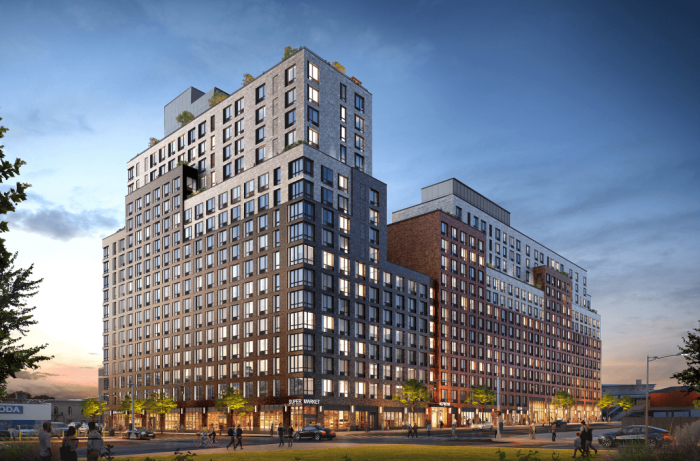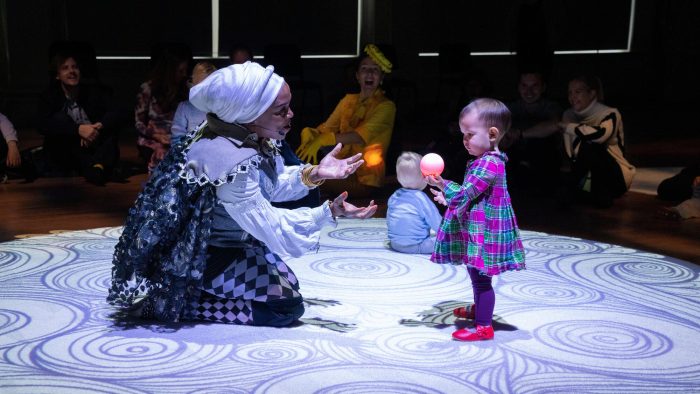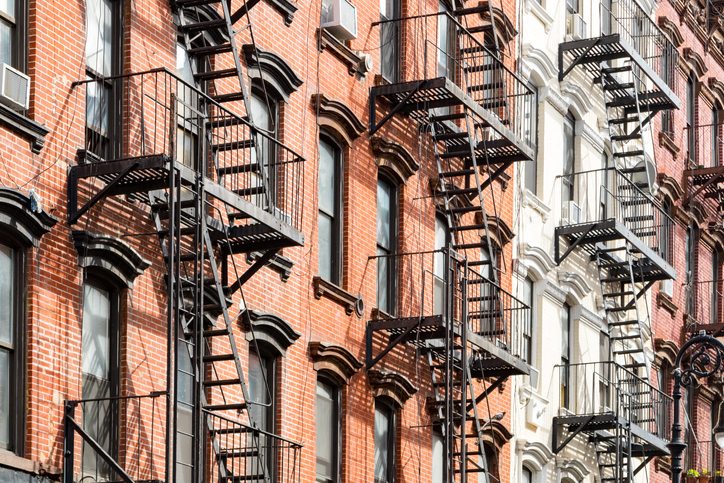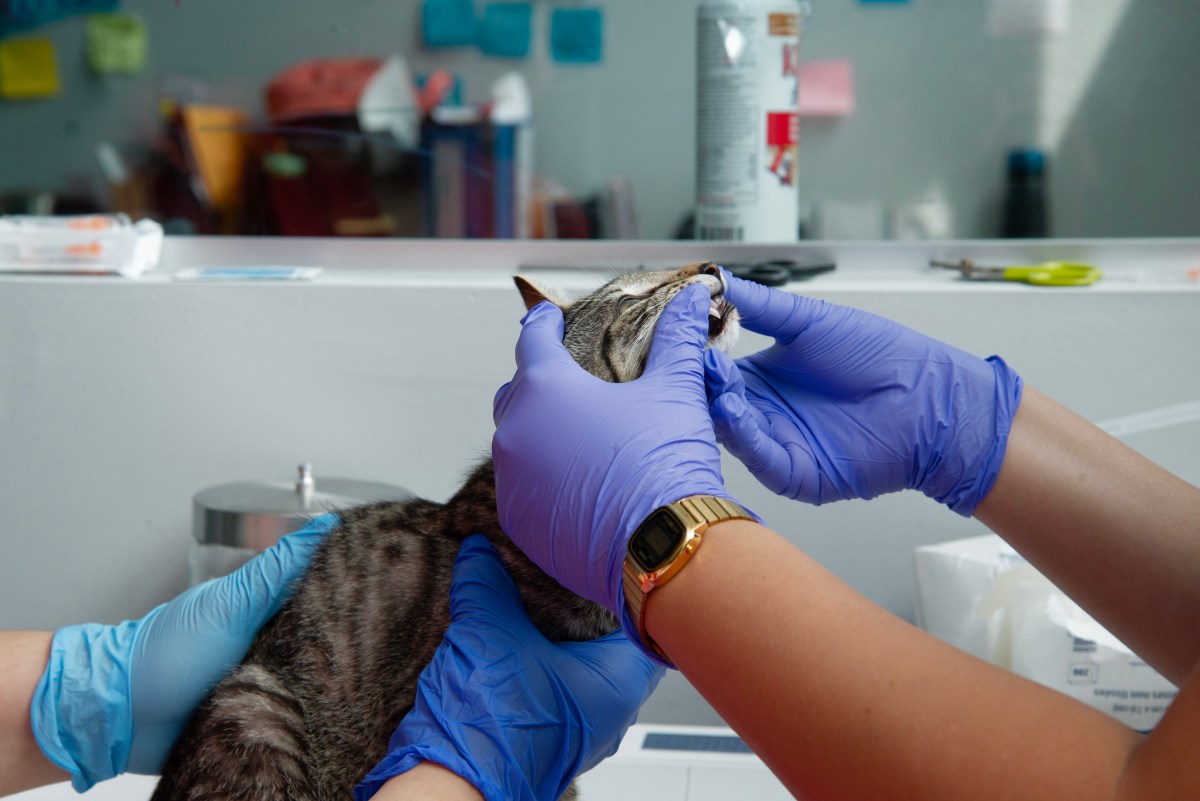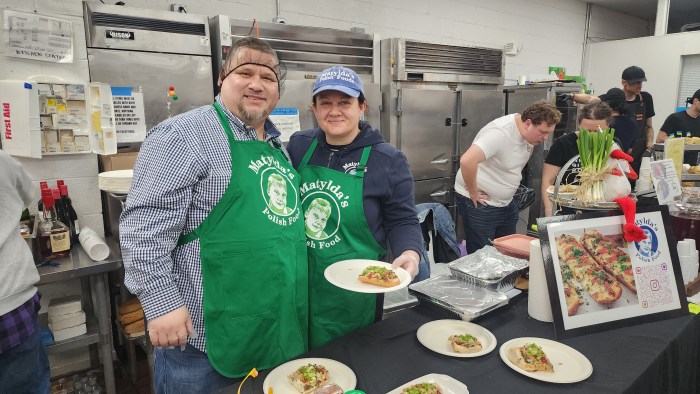Presline Cherisma is only 16 years old, but she is already a veteran of the Christopher St. Pier. On a Thursday afternoon, she sat calmly on a bench near the water, as her friends joked around her.
“I’ve been coming out here for two years,” she said. “I find my friends, we walk around the pier, we talk. If you’re gay, you feel comfortable here. Gay pride, around here, is my favorite experience.”
Presline did look comfortable. The sun was strong and she had her purple cap brim turned upward, letting the rays hit her face. She lives in Flatbush, Brooklyn, where she is not as comfortable being herself. The pier helped her to take the step to come out, publicly.
“Coming out here helps because you see other people like you,” she said, with a shrug. “So a lot of my friends are out here. I mostly come here in the summer and we have picnics — all gay people.”
Presline does not stay out on the pier all night, nor does she let her time by the water, with her friends, interfere with school. She attends Sheepshead Bay High School, and when asked if college is in her future plans, she gave a quizzical look and a short laugh.
“Of course,” she said. “I want to go to school to be a businessperson.”
Until then, Presline will continue to come to the pier in her spare time, hanging out with friends and taking walks into Greenwich Village.
“Other places, people look at you because you’re different,” she said. “I come to the Village and walk around — it’s nice, people are friendly to me.”
Lucas Mann
Wiry and constantly energetic, Angel scooted his feet around on his rollerblades, even after sitting down.
“I’m from Crown Heights,” he said. “So when I have to go to the Lower East Side for appointments, I get on my rollerblades and come over here afterward. And if I’m not here, I’m at the Gay and Lesbian Center on 13th.”
Angel likes the pier and The Center because, he explained, they make him calm. He can relax. He can sit down by himself without worrying that anybody will be yelling at him or talking about him.
“I like being here in the day, when it’s quiet,” he said. “I stick to myself, unless I see some of my good friends, and then I go over to talk. This is my place to relax. After I do what I’ve got to do, then I come down here.”
Angel has every reason to enjoy his moments of relaxation in the breeze. At 18, he has already lived a stressful life.
“I started coming to the pier when I was maybe 13,” he remembered, “because I’ve been on my own since then. I was in the system, and then I got adopted, but my adoptive parents abused me. They didn’t care about me. They just wanted the money. So I left.”
Soon Christopher St. became the center of Angel’s life and, while he said he was positive about his own sexuality since early elementary school, it was on the pier that he became openly gay.
“Since I’m gay and the majority of people out here are gay, we just get to know each other better,” he said with a shrug. “We know more about each other. I met my first boyfriend right here.”
Now, five years later, Angel’s life has become more secure and his attachment to the pier is not as all-encompassing as it once was. These days, he skates around like a man who has come back home for a visit, spotting old friends and heading over for a chat. He pointed out that now he only hangs around for a couple of hours at a time.
“I used to be out here almost every day,” he said with a wry smile. “Now, I’ve been here, I see the same faces, so there ain’t really nothing to do anymore.”
Angel has some other things to do now. He is in a program, working to get his G.E.D. He also has an apartment in Brooklyn where he can stay — one with, he is quick to point out, a television, a PlayStation and a computer. The man in whose apartment Angel stays also hung out on the pier.
“He’s older than me,” Angel said. “I didn’t know him and he came up to me in the pizza place on Christopher, over by Village Cigars, and offered to buy me a slice.”
From there, a relationship and a trust were built. The man asked Angel if he needed a ride, then if he needed a place to stay. Angel has now been living platonically for five months with this man, who understands that Angel will still want to come out to the pier, with the new reassurance that he has someplace friendly to which to return. He asks only that Angel call home to say that he is O.K.
Angel did not romanticize the pier, as he sat restlessly on a bench, nor did he shy away from addressing what he feels to be problems. He mentioned that he was arrested last year by Park Enforcement Patrol officers in Hudson River Park for smoking a marijuana blunt, an arrest that he has seen happen a lot. He was quick to speak out against what he feels are unjust policing practices in the area.
“I do not like the Sixth Precinct,” he said frankly. “They get away with a lot of things.”
Angel launched into descriptions of incidents that he says he saw — a young girl getting elbowed by an undercover cop, a pregnant woman getting shoved into a wall.
“One time, two lesbians were fighting over a cigarette and an undercover shoved me to the ground, trying to get at them,” he said and then gave a sly smile. “That was a bit dramatic, I thought.”
Still, Angel said that he will continue to roll over to the pier, even though he does not have to anymore, even though he does not like the police and even though he is seeing mostly the same faces. He is excited about the Gay Pride March, something that he’s been going to for years.
“I’m thinking about marching this year,” he said. “That’s a long-ass walk, though.
Lucas Mann
Watching the gentle ripple of the Hudson River from the Christopher St. Pier, Paul Mures, 13, fingered his handheld video game, placing it on his lap without pressing the buttons or focusing on the screen.
“It’s beautiful,” he said, looking up and gazing south. His gold earrings that spelled out his first name in script sparkled in the daylight. “The sun, the water, the boats.”
Mures is like many gay teenagers — ostracized and sometimes aimless — who come to the pier and find peace and community by the river. They relax enough to be themselves, dancing and laughing with friends.
Mures often drove with his parents past the pier, but never before had he walked across the grass and sat down on a bench. It was his first day hanging out here.
He and his friends came with music and food from their homes in Flatbush, Brooklyn. The friends crowded around him, two sitting at his side and the others standing with their arms crossed, some holding iPods as they swung their bodies from side to side.
Mures was quiet at the moment, though he said he is loud in the classroom. School is his biggest problem.
“I’m too talkative,” he said. “So the teachers lower my grade.”
He hopes that someone could guide him on how to focus, though people on the pier were talking about McDonald’s and dance clubs, not academics.
“I want to try and stay concentrated,” he said.
Laurie Mittelmann
Wearing a “Born in NYC” shirt, Daniel Stallings leaned back in his chair at the Christopher St. Pier and watched people walk past.
He is an observer. A critical observer. He sees teenagers frolicking on the grass and sunning themselves, but recognizes that they aren’t only relaxing after school or before dinner.
They are here all day and night.
Stallings, 23, likes to have fun, as do those people spitting rhymes and shaking hips, but he distances himself from the ones who curl up to sleep under benches and resort to prostitution for cash.
“The only thing that bugs me is the regulars,” he said. “They don’t have a home and that’s sad.”
He notices older people on the pier adopt the impressionable youth, whose parents disown them, often because of their sexuality.
“Some regulars will try to poison your mind,” said Stallings. “They try to mess with the kids and tell them they’re their parents.”
Stallings, who attends Borough of Manhattan Community College and cleans airplanes part time at John F. Kennedy Airport, believes that real families are important and credits his life being on track to his parents’ support.
“You don’t wanna be a mama’s boy,” he said. “But you need a mature influence.”
His mother and father didn’t immediately accept his sexuality when he came out, yet they went with him to the Lesbian, Gay, Bisexual and Transgender Community Center on 13th St. to meet with a counselor who facilitated discussion.
Stallings explained his self-realization, and his parents accepted it and didn’t kick him out of the house.
“They have my back,” he said.
Now when he looks out along the pier and sees kids who haven’t yet opened up to their parents, but instead avoid them, and others who have told their parents and were abandoned, he wishes they would also seek help.
“There’s family before family,” he said. “If you tell them every day that you love them and ask for their support, they’ll respect you.”
Stallings has met a 39-year-old friend on the pier, however, whom he calls an inspiration instead of a negative influence.
The man smiled at Stallings one day and they proceeded to chat about school, work and ex-boyfriends. Later, the man told him stories about the pier’s previous “corruption” and how police officers would smoke joints there.
To Stallings, it’s all part of the history shaping the pier over the decades, from its recent renovations to the people visiting it, who continue to explore and find themselves along the Village waterfront.
Laurie Mittelmann




